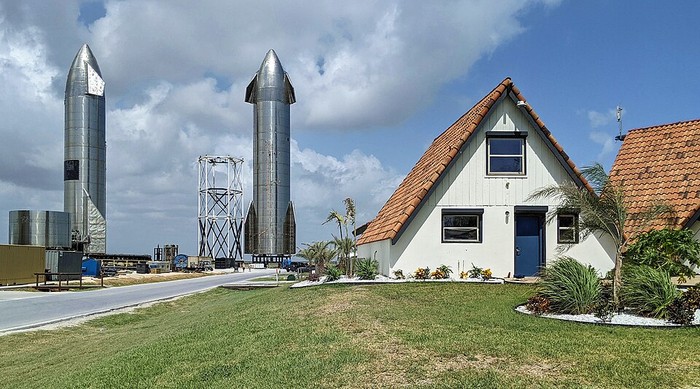Elon Musk’s SpaceX has achieved a significant milestone: its South Texas rocket facility, Starbase, is now officially a city. This development has sparked both celebration and controversy.
The overwhelming approval of the Starbase cityhood, with a 212 to 6 vote, marks a pivotal moment for SpaceX’s ambitions in the region. However, concerns have been raised about the implications of a company essentially governing its own town.
Starbase: A Company Town Takes Shape
The newly established city of Starbase encompasses a relatively small area—approximately 3.9 square kilometers—near the Mexican border. The landscape is characterized by a collection of trailers and modest homes, alongside roads crucial for SpaceX’s operations.
SpaceX’s rationale for seeking city status centers on the need for improved infrastructure management and community development. The company currently handles utilities, roads, and even provides some healthcare and educational services for its residents, primarily Starbase employees.
This self-governance model allows SpaceX greater control over its operations, aiming to streamline the launch process and expansion plans. The company has requested permission to increase annual launches from 5 to 25.
Local Support and Growing Concerns
SpaceX has secured considerable support from local officials, primarily due to the substantial job creation and investment the company brings to the area. This economic benefit outweighs concerns for many.
However, the creation of a company-owned town raises significant concerns about Musk’s increasing influence and potential limitations on public oversight. The potential for conflicts of interest is a major point of contention.
Critics argue that granting a private company control over a town is unprecedented and potentially detrimental to democratic principles. The lack of independent governance raises fears about transparency and accountability.
Beach Access and Environmental Justice
One of the most contentious aspects of Starbase’s cityhood concerns beach access. SpaceX has indicated that gaining the authority to close beaches would simplify launch operations.
This proposal has drawn fierce opposition from environmental groups and local residents who fear restricted access to public beaches, a cherished resource for generations. The South Texas Environmental Justice Network organized protests against the vote.
Residents like Josette Hinojosa, who shared concerns about losing beach access for her family, voiced their opposition. The issue underscores the broader implications of a privately governed entity controlling public resources.
The protests highlight the tension between SpaceX’s economic contribution and the preservation of community rights and environmental justice. Balancing economic development with the preservation of public access and environmental protection remains a key challenge.
The future of Starbase will be a test case for the balance between private enterprise and public good. The success of the city will hinge on its ability to address the concerns of residents and ensure responsible development while facilitating SpaceX’s ambitious space exploration goals. The ongoing debate underscores the complex issues surrounding the intersection of private industry and local governance.










Leave a Comment